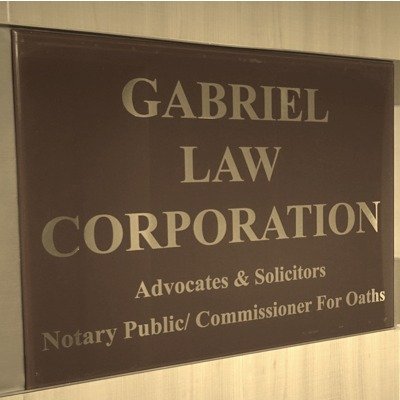Best Bankruptcy Lawyers in Raffles Place
Share your needs with us, get contacted by law firms.
Free. Takes 2 min.
List of the best lawyers in Raffles Place, Singapore
About Bankruptcy Law in Raffles Place, Singapore
Bankruptcy law in Raffles Place, Singapore, is governed by the Bankruptcy Act, which seeks to balance the interests of both creditors and bankrupts. The law oversees the processes of declaring bankruptcy, the effects of being declared bankrupt, obligations and rights of the bankrupt individual and the discharge of bankruptcy. Being declared bankrupt can have serious implications, both legally and personally, and can affect an individual's credit rating, personal reputation, and freedom to travel abroad.
Why You May Need a Lawyer
The complexity of the bankruptcy law and the dire implications of being declared bankrupt are reasons why you may want to engage a lawyer. A lawyer can help ensure your rights are defended, guide you through the legal process and represent your interests in negotiations with creditors or court proceedings. They can also provide you with advice on possible alternatives to bankruptcy.
Local Laws Overview
According to the Bankruptcy Act of Raffles Place, Singapore, an individual can be declared bankrupt if they owe more than S$15,000 and cannot pay up. Once you've been declared bankrupt, you must hand over all your assets to a government-appointed official known as the Official Assignee, who manages your assets to repay your debts. As a bankrupt person, you would be subject to certain limitations, including trips abroad without approved permission, starting or managing a business, and obtaining credit. Having satisfied certain conditions, a bankrupt can be discharged from bankruptcy.
Frequently Asked Questions
What is the process of filing for Bankruptcy?
Before filing for bankruptcy, it is recommended to seek advice from a lawyer or financial counsellor. If you proceed with bankruptcy, you will need to submit a bankruptcy application to the court, and if approved, an Official Assignee will be assigned to manage your debts.
Will I lose all my assets if I am declared bankrupt?
When an individual is declared bankrupt, most of their assets may be claimed to repay the debts. There are, however, some assets that are protected under the Bankruptcy Act, which includes tools or property used for personal work and essential household furniture and clothing.
How long does bankruptcy last?
Bankruptcy does not have a fixed duration in Singapore. It will last until you are discharged, either by paying off your debts, obtaining a Certificate of Order from creditors, or through a court order.
Can a bankrupt individual travel overseas?
A bankrupt individual must obtain the permission of the Official Assignee to travel abroad. You are, however, more likely to receive permission if the travel is for work-related purposes.
What happens when a bankrupt is discharged?
When a bankrupt is discharged, they are released from their debts, and most of the restrictions and disabilities caused by the bankruptcy are also lifted. However, the bankruptcy will still be on public record for five years.
Additional Resources
The Insolvency Office under the Ministry of Law and the Legal Aid Bureau can provide more information on bankruptcy laws in Singapore. Free legal advice may also be available from Community Legal Clinics.
Next Steps
If you need legal assistance in a bankruptcy matter, consult a law firm that specializes in this area. They can help you understand your rights and responsibilities, explore potential alternatives to bankruptcy, and possibly negotiate with your creditors. It's important to act quickly to protect your interests and seek professional advice as soon as possible.
Lawzana helps you find the best lawyers and law firms in Raffles Place through a curated and pre-screened list of qualified legal professionals. Our platform offers rankings and detailed profiles of attorneys and law firms, allowing you to compare based on practice areas, including Bankruptcy, experience, and client feedback.
Each profile includes a description of the firm's areas of practice, client reviews, team members and partners, year of establishment, spoken languages, office locations, contact information, social media presence, and any published articles or resources. Most firms on our platform speak English and are experienced in both local and international legal matters.
Get a quote from top-rated law firms in Raffles Place, Singapore — quickly, securely, and without unnecessary hassle.
Disclaimer:
The information provided on this page is for general informational purposes only and does not constitute legal advice. While we strive to ensure the accuracy and relevance of the content, legal information may change over time, and interpretations of the law can vary. You should always consult with a qualified legal professional for advice specific to your situation.
We disclaim all liability for actions taken or not taken based on the content of this page. If you believe any information is incorrect or outdated, please contact us, and we will review and update it where appropriate.









